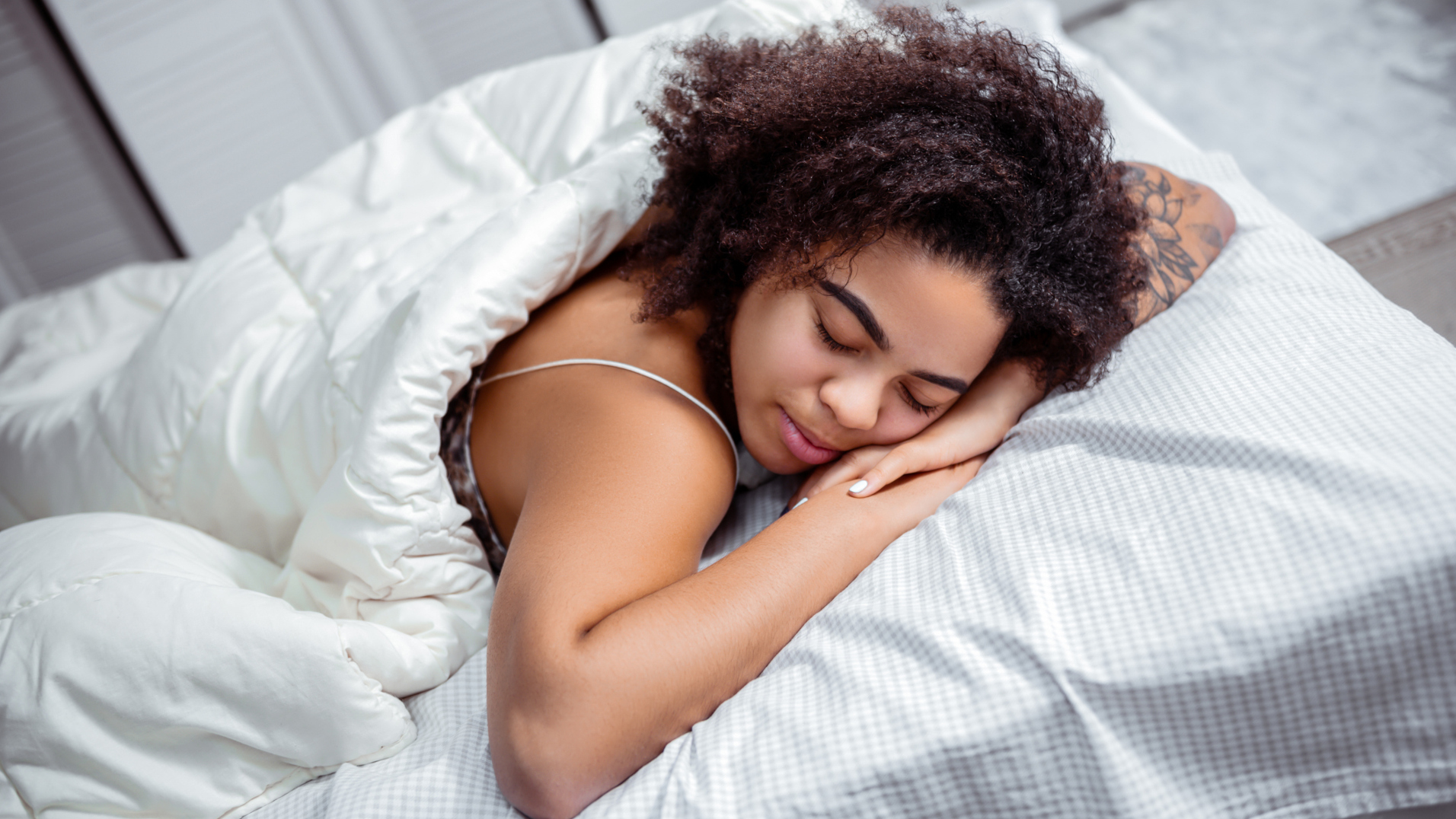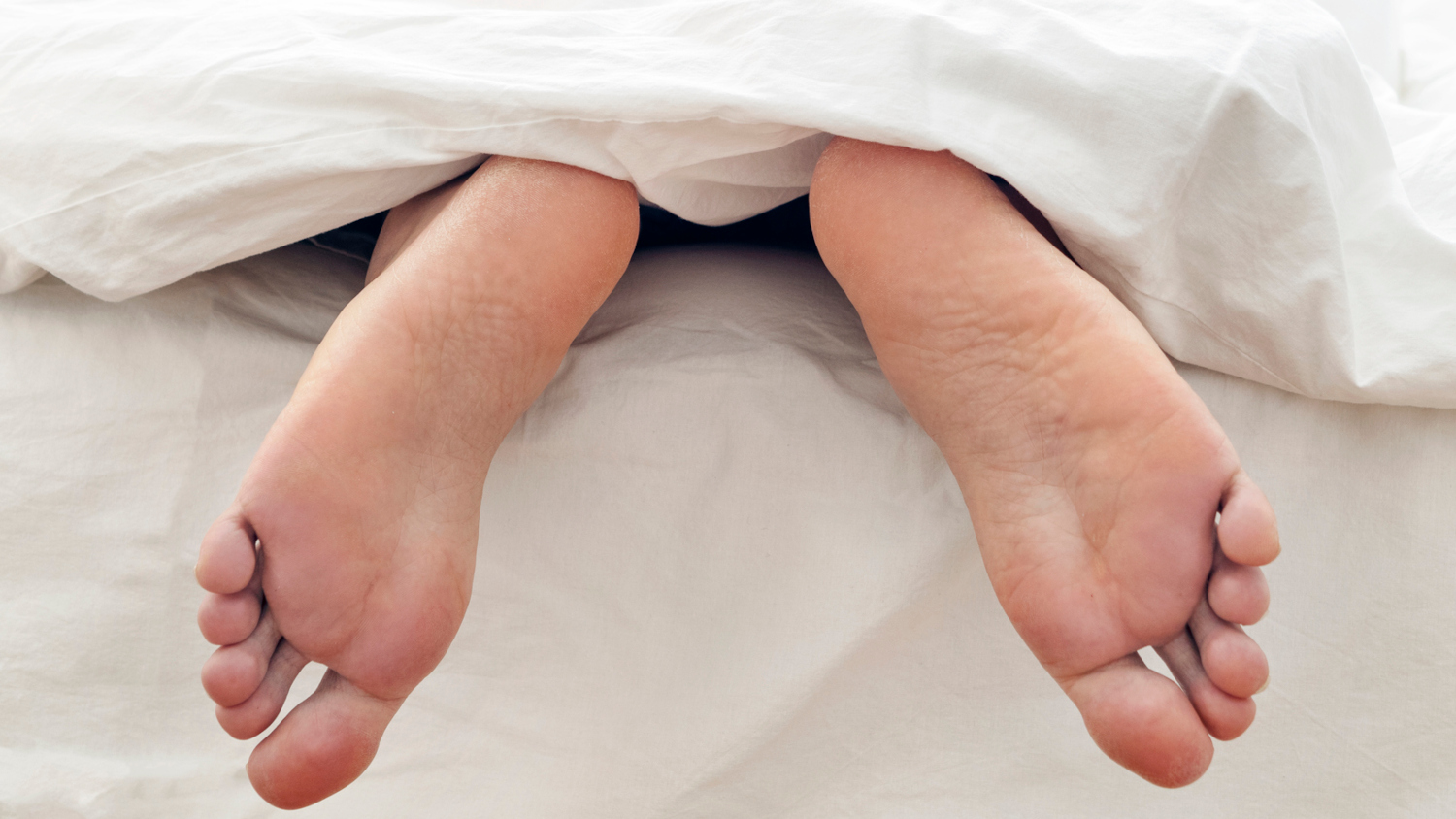Is sleeping on your front bad for you?
Can falling asleep on your front be okay for your health?

Sign up for breaking news, reviews, opinion, top tech deals, and more.
You are now subscribed
Your newsletter sign-up was successful
Face planting into bed is the type of thing we see in the movies, and is likely what we feel like doing when we’re tired - but is sleeping on your front bad for you?
According to stats, it’s the least popular sleeping position, with only 10% of us adopting this sleeping position - instead opting for side or back sleeping.
But if it's the sleep position you’ve chosen, have you ever wondered if sleeping on your front is good for your health? From back pain to snoring - we talk to the experts about how sleeping on your stomach can affect your sleep and if it’s good for you.
Is stomach sleeping okay?
Yes, and no, depending on your flexibility and if you’re likely to sleep on your front all night. First off, it’s not great for the neck, says Dr. Guy Meadows (PhD), a sleep expert and co-founder of Sleep School: “Because you're lying on your front, you're leaving your neck in a crooked position all night - and that’s just going to increase the risk of experiencing discomfort at best and at worst - physical pain in the long term.”
Also, ever woken up with a dead arm and wondered why: “You might wake up with little indicators such as numb fingers, or tingling toes. So, unless you have a high level of flexibility it’s going to be very uncomfortable.”
If you’re a snorer or suffer from reflux, this position can be an alternative to sleeping on your back, which just increases the likelihood of both occurring. When you’re on your front your tongue doesn’t fall to the back of your throat, opening the airways and allowing you to sleep better.
However, if you suffer from bad skin or acne, it could be making it worse - as bacteria and oils will build up on the pillowcase over the night, and days, and could cause breakouts; find out why pillows turn yellow and how to tell if they’re healthy to sleep on.
Sign up for breaking news, reviews, opinion, top tech deals, and more.
Why should you not sleep on your stomach?
There’s a reason why only 10% of us sleep on our stomachs - and it’s mainly to do with spinal alignment. If you suffer from a bad back or don’t want to, Meadow warns that it “could affect the whole spinal column and cause undue pressure on a certain area - such as trapping a nerve.”
But why is it so bad for spinal health? A lot of our body weight is found in the stomach, meaning, unless you have the very best mattress - that is, one firm enough to keep you aligned - then more than likely there’ll be a curve in your back for 7 - 9 hours.
Pregnant women should also be careful in this position - there’s no evidence to suggest that in your first trimester it could harm the baby, but if you’re already suffering from a bad back it’s going to make it worse. The best position to sleep in when you’re pregnant is on your side - especially as the baby grows, as it will be safer and more comfortable.
What kind of mattress is best for stomach sleepers?
A firm mattress which doesn’t sink in the middle, and helps to support the whole body, specifically the spine, as you sleep. A softer mattress won’t protect your spine and will allow your body to sink into it - meaning your spine will be out of alignment.
The construction of the mattress matters too; a pocket sprung mattress or the best hybrid mattress should be sturdy enough to hold your body weight in a firmer position as you sleep on your front at night, meaning your spine won’t curve inwards.
Are there any benefits to front sleeping?

According to one study, 44 per cent of males and 28 per cent of females who are between 30 and 60 snore; however, this is more likely to occur when you sleep on your back, one of the very few downsides to falling asleep in this position.
Sleeping on your front relaxes the nasal passageways, helping you to breathe better through your mouth and nose. It can also help you if you suffer from sleep apnea, which means you breathe intermittently when you sleep. Like snoring, it's caused by the tongue relaxing at the back of the throat and blocking your airways; however it's more dangerous and can be life-threatening if not treated properly.
Both conditions can be made less severe by sleeping on your stomach or side - although side sleeping can be healthier.
How can you change your sleep position?
If you’re finding sleeping on your stomach uncomfortable, or you’re worried about the health implications then it’s worth trying out other sleep positions.
“Start by trialling sleeping positions, as it's really just trial and error - and most people will generally have an idea of which one they would like to adopt next,” says Meadows.
“If you think about it as though ‘I'm going to be open to attempting to sleep on my side, for an hour one night, this week’ - you really want to take it slow, and you might fall asleep, but you may not - it's about experimentation.”
If you’re finding it difficult, try placing a pillow next to your stomach, and one next to your back, so if you do naturally try to turn onto your front you won’t be able to.
What's the healthiest sleeping position?
“Everyone is a specialist in themselves,” says Meadows, “So unless there's some overriding medical condition, I would opt for sleeping in the position which you find most comfortable,”
However, if you do have snoring or reflux issues and don’t want to disturb you or your partner's sleep, sleeping on your back can be unhealthy for you and could lead to other more serious issues.
Sleeping on your back is the healthiest position for your spine; as long as you have the right pillow loft and mattress firmness your spinal alignment will stay on track the whole night. If sleeping on your back is uncomfortable, the neutral alignment of a semi-fetal side posture is the healthiest sleeping position

Sarah is a freelance writer - writing across titles including Woman&Home, Fit&Well, TechRadar, the Independent and the BBC. She covers a variety of subjects, including trends in beauty, business and wellness - but her biggest passions are travel and fitness. She can normally be found trying out the latest fitness class or on a plane to an exotic destination. While she loves to combine the two - signing up to do hiking holidays in LA, intense boot camps in Bali - last year she went on her dream activity holiday: paddleboarding around deserted islands in Croatia.